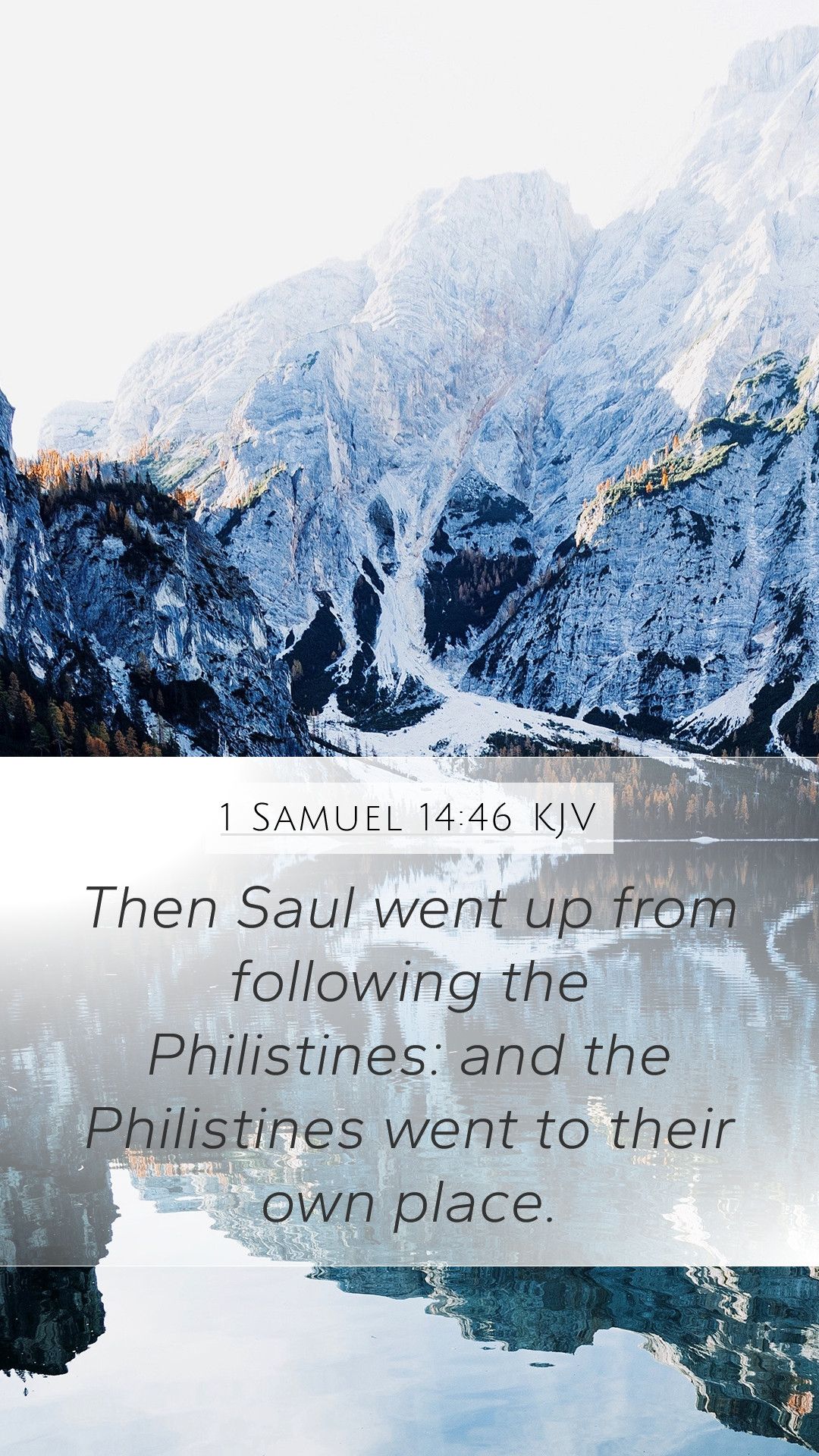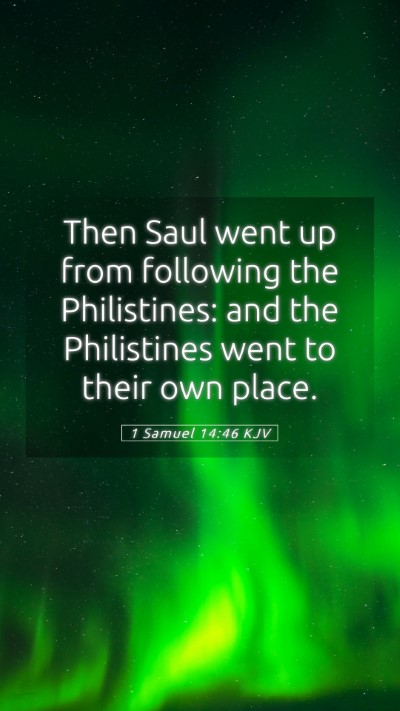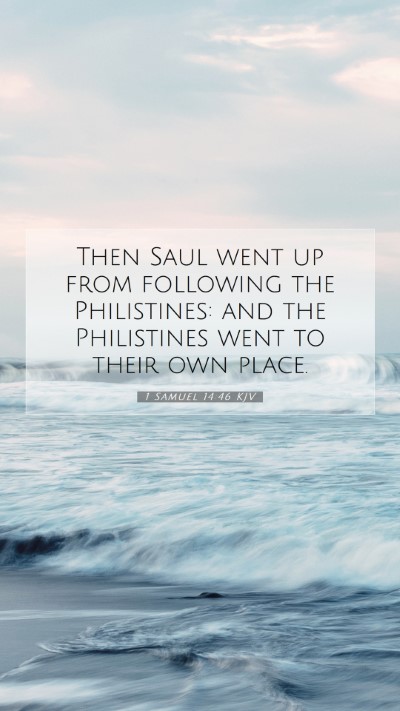Understanding 1 Samuel 14:46
Bible Verse: 1 Samuel 14:46 - "Then Saul said, 'Let us go down after the Philistines by night and plunder them until the morning light; and let us not leave a man of them.' And they said, 'Do whatever seems good to you.' But the priest said, 'Let us draw near to God here.'
Overview
This passage occurs during a significant moment in Israel's history, where Saul's leadership is questioned, and their conflict with the Philistines intensifies. The verse sheds light on the attitudes and actions of Saul as a leader, especially regarding his approach towards war and seeking God's guidance.
Bible Verse Meanings and Interpretations
Understanding this verse involves delving into several critical themes, including leadership, divine guidance, and the consequences of hasty decisions. Here are some combined insights from public domain commentaries:
- Leadership of Saul: Matthew Henry notes that Saul's inclination to pursue the Philistines without prayerful consideration reveals a significant flaw in his character as a leader. His approach exemplifies rashness and a lack of reliance on God.
- Seeking God: Albert Barnes highlights the priest’s intervention as crucial. The suggestion to "draw near to God" indicates a necessary pause for reflection and prayer before action—a fundamental principle in Biblical decision-making.
- Consequences of Actions: Adam Clarke points out that the eagerness to plunder as suggested by Saul illustrates the dangers of prioritizing immediate gain over spiritual guidance. Such actions lead to chaos and disorder in leadership.
- Community Consensus: The reaction of the people to Saul’s command—"Do whatever seems good to you"—suggests a troubling dynamic where the community fails to hold the leader accountable, reflecting a potential deterioration of moral standards and governance.
Scripture Analysis
This analysis emphasizes the need for careful consideration of motives in leadership and recognizes the importance of divine guidance in all actions. As believers today reflect on Saul’s decision-making process, it encourages a deeper contemplation of how to balance ambition with spiritual obedience.
Application of the Verse
This verse challenges modern believers to reflect on their actions and decisions, considering whether they are driven by haste or spiritually guided judgment. Key applications include:
- Engaging in prayer before making significant decisions.
- Recognizing the importance of accountability within church and community.
- Understanding the potential pitfalls of pursuing quick gains without consulting God.
- Reflecting on the role of leadership and the responsibility it entails towards followers.
Additional Bible Cross References
This verse can be related to various other scriptures that explore the themes of leadership, divine counsel, and the importance of seeking God:
- 1 Samuel 13:14 - "But now your kingdom shall not continue. The LORD has sought for Himself a man after His own heart..."
- Proverbs 3:5-6 - "Trust in the LORD with all your heart, and lean not on your own understanding; in all your ways acknowledge Him, and He shall direct your paths."
- James 1:5 - "If any of you lacks wisdom, let him ask of God, who gives to all liberally and without reproach, and it will be given to him."
Conclusion
In conclusion, 1 Samuel 14:46 serves as a vital lesson on the significance of seeking divine guidance in leadership and decision-making. The interplay between Saul's command and the priest’s call for prayer embodies the necessity for wisdom in every undertaking. Through understanding this scripture, we gain valuable insights that inform our practices in Bible study groups and personal Bible study.
Engaging with this verse provides profound Bible study insights on how to interpret Bible verses holistically and meaningfully. Ultimately, it underscores the need for reflective practices and spiritual discernment in our daily lives.


